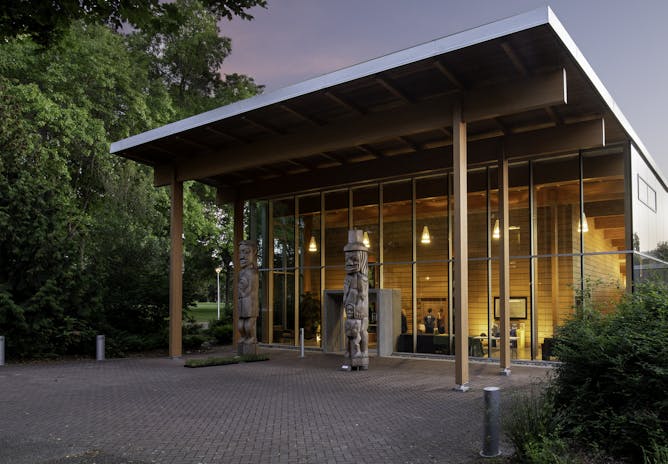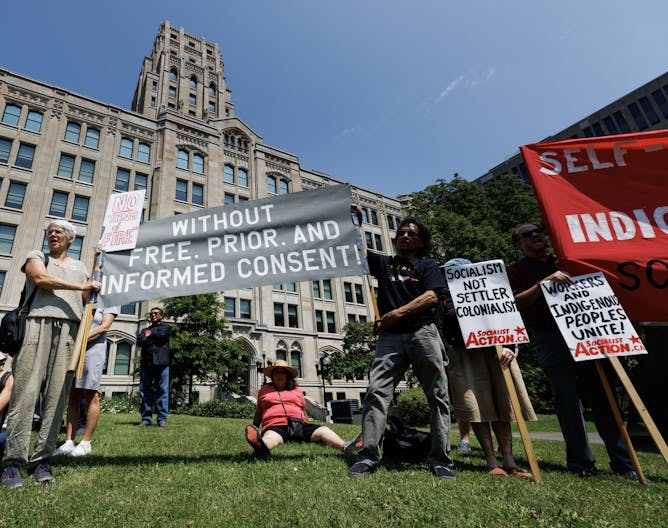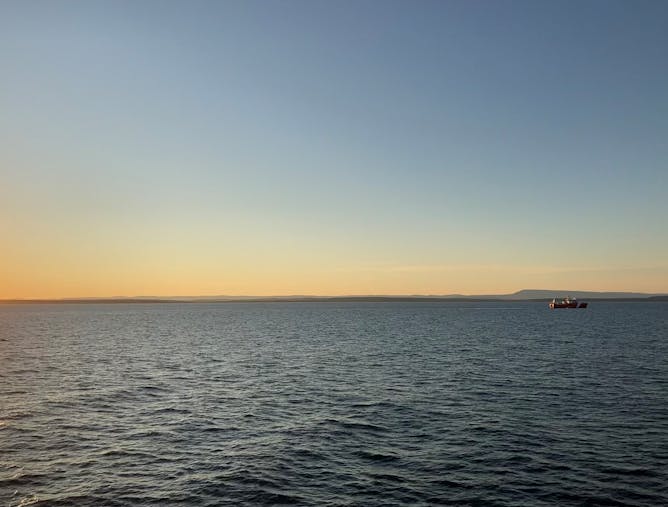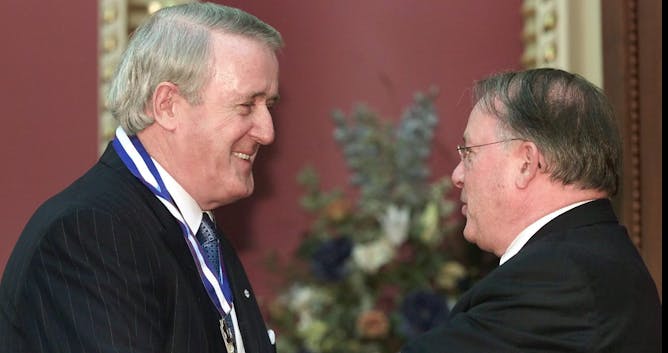|
As spring has begun this week, it is understandable that most Canadians are looking forward to the imminent arrival of warmer and longer days. However, for many across Western Canada, this optimism is tinged with trepidation as a combination of factors including limited rainfall, climate change and governance failures will likely result in unprecedented drought and low river water levels across Alberta in 2024.
Today in The Conversation Canada, David Barrett and Kerry Black from the University of Calgary discuss the impending water supply crisis across southern Alberta, its underlying causes and the implications of low water levels for both aquatic ecosystems and human well being.
They write: “As we move through what will be an unprecedented low water year, it will be critical that policymakers, regulators and all Canadians understand the far-reaching impacts” these shortages will have.
Also today:
All the best.
|

Highway 4 crosses Lake Diefenbaker at Saskatchewan Landing Provincial Park. Lake Diefenbaker is a part of the South Saskatchewan river basin which faces unprecedented levels of reduced water flows in 2024.
THE CANADIAN PRESS/Michael Bell
David Barrett, University of Calgary; Kerry Black, University of Calgary
Declining precipitation, climate change and governance failures will drive water flow scarcity in 2024 with serious implications across Western Canada.
|

Republican presidential candidate and former U.S. President Donald Trump speaks in Rome, Ga. on March 9, 2024.
(AP Photo/Mike Stewart)
Samantha Dodson, University of British Columbia; Rachael Dailey Goodwin, Syracuse University
A new study examines why women who report sexual misconduct often experience retaliation while men who are alleged perpetrators of sexual assault escape repercussions.
|

Fostering belonging for Indigenous students through courses, as well as through dedicated campus spaces, matters.
First Peoples House at University of Victoria.
(UVic Photos)
Loren Gaudet, University of Victoria; Lydia A. I. Toorenburgh, University of Victoria
It’s possible to work with restricted resources to design and implement creative initiatives to serve the particular needs of Indigenous students at university.
|

People hold rally signs during a Toronto rally raising concerns and opposition to the Ontario provincial government’s plans to expand mining operations in the so-called Ring of Fire region in northern Ontario in July 2023.
THE CANADIAN PRESS/Cole Burston
Andrew Grant, Queen's University, Ontario; Badriyya Yusuf, Queen's University, Ontario; Dimitrios Panagos, Memorial University of Newfoundland; Matthew I. Mitchell, University of Saskatchewan
Ontario’s Ring of Fire could make Canada a minerals superpower, but Indigenous consultation is essential to ensure doing so does not harm reconciliation or Canada’s global reputation.
|

The habitats used throughout the halibut’s life and the movements between them are difficult to characterize.
(Charlotte Gauthier)
Charlotte Gauthier, Université du Québec à Chicoutimi (UQAC)
Atlantic halibut are making a strong comeback in the Gulf of St. Lawrence. But how do we know where the fish move throughout their lives?
|

TikTok ne représente pas plus une menace pour la démocratie que les autres plateformes de médias sociaux.
(Shutterstock)
Robert Diab, Thompson Rivers University
Environ le quart des Canadiens utilisent TikTok. Réglementer l’application au Canada est-il la meilleure approche pour éviter toute influence politique extérieure ?
|

L'ancien premier ministre Brian Mulroney reçoit l'Ordre national du Québec des mains du premier ministre du Québec Bernard Landry, en mai 2002, lors d'une cérémonie au Parlement du Québec.
La Presse canadienne/Jacques Boissinot)
Christophe Premat, Stockholm University
Les relations diplomatiques entre la France, la Francophonie et le gouvernement canadien sont restées glaciales jusqu’à ce que feu Brian Mulroney devienne premier ministre.
|
Education
|
-
Daniel Douglas, Trinity College
The credentials can be earned online in a matter of weeks and may lead to higher salaries, but not always.
|
|
Health
|
-
Lian Liu, University of Surrey
A pre-print paper has called into question the long-held marketing claim that hyaluronic acid can hold 1,000 times its weight in water.
|
|
Science + Tech
|
-
Yuan-Sen Ting, Australian National University; Fan Liu, Monash University
The largest study yet of ‘twin stars’ shows planetary orbits may be less stable than we thought.
|
|